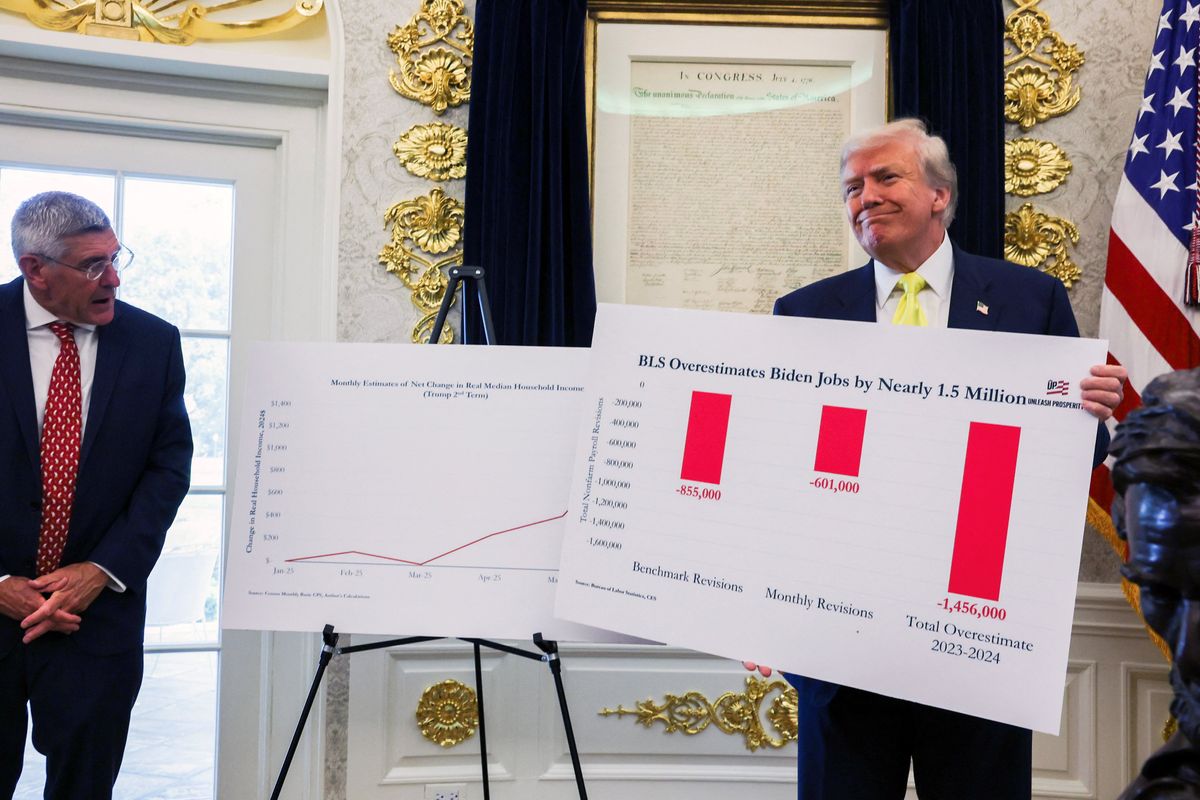
Nearly two-dozen CEOs of major companies are sounding the alarm on what could potentially be an impending job crisis, an Axios report published Saturday found.
Axios co-founder and CEO Jim VandeHei found that of the 20 CEOs they spoke to last week, every single one of them was reducing future hiring due, in part, to the rise of generative artificial intelligence.
“Maybe all these CEOs are wrong. But what if they're right?” VandeHei wrote. “The White House and Congress aren't treating this like a brewing crisis, and seem more focused on beating China to advanced AI than bracing workers for a short-term jolt.”
While VandeHei did not publish any direct quotes from his discussions with CEOs, he did point to past statements that appeared to mirror the concerns expressed to him last week.
“Artificial intelligence is going to replace literally half of all white-collar workers in the U.S.," said Ford CEO Jim Farley last summer while speaking at the Aspen Ideas Festival in Colorado. “AI will leave a lot of white-collar people behind."
CEOs for both Amazon and Walmart shared similar sentiments this year. Amazon CEO Andy Jassy said that his company expects to “reduce our total corporate workforce” because of AI, and Walmart CEO Doug McMillon told his company executives that they should expect to freeze hiring in the near future.
For VandeHei, however, the looming potential job crisis, which he described as “unfolding in plain sight across America,” was largely being ignored by the Trump administration.
“Top officials argue that the race with China is existential and that new technologies, over time, create more and better jobs,” VandeHei wrote. “They dismiss the warnings of massive job loss as misguided doomerism.”
The Trump administration has been hyper focused on besting China’s own AI development, framing it as a geopolitical race with the United State’s most formidable advisory, and with the stated goal of achieving “global dominance in artificial intelligence.” President Donald Trump has signed an executive order to remove regulations around AI development, and championed hundreds of billions of dollars’ worth of private-sector investments into AI development.
That hyper focus could prove short sighted, however, with VandeHei arguing that the Trump administration had failed to set up the proper guardrails in the event of widespread adoption of AI by American companies, and at the expense of American jobs.
“Most new technologies cause short-term pain but later create new jobs,” VandeHei wrote. “What's different with this one is that we had advanced warning to prepare the population for it.”




